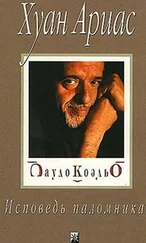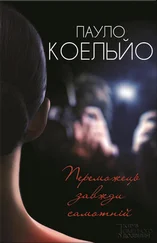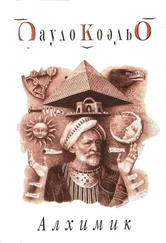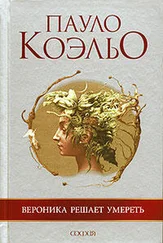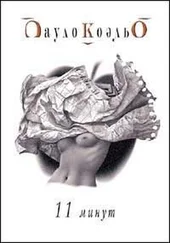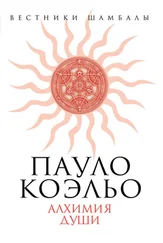Пауло Коэльо - The Alchemist
Здесь есть возможность читать онлайн «Пауло Коэльо - The Alchemist» весь текст электронной книги совершенно бесплатно (целиком полную версию без сокращений). В некоторых случаях можно слушать аудио, скачать через торрент в формате fb2 и присутствует краткое содержание. Жанр: Старинная литература, на русском языке. Описание произведения, (предисловие) а так же отзывы посетителей доступны на портале библиотеки ЛибКат.
- Название:The Alchemist
- Автор:
- Жанр:
- Год:неизвестен
- ISBN:нет данных
- Рейтинг книги:4 / 5. Голосов: 1
-
Избранное:Добавить в избранное
- Отзывы:
-
Ваша оценка:
- 80
- 1
- 2
- 3
- 4
- 5
The Alchemist: краткое содержание, описание и аннотация
Предлагаем к чтению аннотацию, описание, краткое содержание или предисловие (зависит от того, что написал сам автор книги «The Alchemist»). Если вы не нашли необходимую информацию о книге — напишите в комментариях, мы постараемся отыскать её.
The Alchemist — читать онлайн бесплатно полную книгу (весь текст) целиком
Ниже представлен текст книги, разбитый по страницам. Система сохранения места последней прочитанной страницы, позволяет с удобством читать онлайн бесплатно книгу «The Alchemist», без необходимости каждый раз заново искать на чём Вы остановились. Поставьте закладку, и сможете в любой момент перейти на страницу, на которой закончили чтение.
Интервал:
Закладка:
He spent the entire morning observing the infrequent comings and goings in the street. He had done this for years, and knew the schedule of everyone who passed. But, just before lunchtime, a boy stopped in front of the shop. He was dressed normally, but the practiced eyes of the crystal merchant could see that the boy had no money to spend. Nevertheless, the merchant decided to delay his lunch for a few minutes until the boy moved on.
*
A card hanging in the doorway announced that several languages were spoken in the shop. The boy saw a man appear behind the counter.
"I can clean up those glasses in the window, if you want," said the boy. "The way they look now, nobody is going to want to buy them."
The man looked at him without responding.
"In exchange, you could give me something to eat."
The man still said nothing, and the boy sensed that he was going to have to make a decision. In his pouch, he had his jacket—he certainly wasn't going to need it in the desert. Taking the jacket out, he began to clean the glasses. In half an hour, he had cleaned all the glasses in the window, and, as he was doing so, two customers had entered the shop and bought some crystal.
When he had completed the cleaning, he asked the man for something to eat. "Let's go and have some lunch," said the crystal merchant.
He put a sign on the door, and they went to a small caf?nearby. As they sat down at the only table in the place, the crystal merchant laughed.
"You didn't have to do any cleaning," he said. "The Koran requires me to feed a hungry person."
"Well then, why did you let me do it?" the boy asked.
"Because the crystal was dirty. And both you and I needed to cleanse our minds of negative thoughts."
When they had eaten, the merchant turned to the boy and said, "I'd like you to work in my shop. Two customers came in today while you were working, and that's a good omen."
People talk a lot about omens, thought the shepherd. But they really don't know what they're saying. Just as I hadn't realized that for so many years I had been speaking a language without words to my sheep.
"Do you want to go to work for me?" the merchant asked.
"I can work for the rest of today," the boy answered. "I'll work all night, until dawn, and I'll clean every piece of crystal in your shop. In return, I need money to get to Egypt tomorrow."
The merchant laughed. "Even if you cleaned my crystal for an entire year… even if you earned a good commission selling every piece, you would still have to borrow money to get to Egypt. There are thousands of kilometers of desert between here and there."
There was a moment of silence so profound that it seemed the city was asleep. No sound from the bazaars, no arguments among the merchants, no men climbing to the towers to chant. No hope, no adventure, no old kings or destinies, no treasure, and no Pyramids. It was as if the world had fallen silent because the boy's soul had. He sat there, staring blankly through the door of the caf? wishing that he had died, and that everything would end forever at that moment.
The merchant looked anxiously at the boy. All the joy he had seen that morning had suddenly disappeared.
"I can give you the money you need to get back to your country, my son," said the crystal merchant.
The boy said nothing. He got up, adjusted his clothing, and picked up his pouch.
"I'll work for you," he said.
And after another long silence, he added, "I need money to buy some sheep."
PART TWO
The boy had been working for the crystal merchant for almost a month, and he could see that it wasn't exactly the kind of job that would make him happy. The merchant spent the entire day mumbling behind the counter, telling the boy to be careful with the pieces and not to break anything.
But he stayed with the job because the merchant, although he was an old grouch, treated him fairly; the boy received a good commission for each piece he sold, and had already been able to put some money aside. That morning he had done some calculating: if he continued to work every day as he had been, he would need a whole year to be able to buy some sheep.
"I'd like to build a display case for the crystal," the boy said to the merchant. "We could place it outside, and attract those people who pass at the bottom of the hill."
"I've never had one before," the merchant answered. "People will pass by and bump into it, and pieces will be broken."
"Well, when I took my sheep through the fields some of them might have died if we had come upon a snake. But that's the way life is with sheep and with shepherds."
The merchant turned to a customer who wanted three crystal glasses. He was selling better than ever… as if time had turned back to the old days when the street had been one of Tangier's major attractions.
"Business has really improved," he said to the boy, after the customer had left. "I'm doing much better, and soon you'll be able to return to your sheep. Why ask more out of life?"
"Because we have to respond to omens," the boy said, almost without meaning to; then he regretted what he had said, because the merchant had never met the king.
"It's called the principle of favorability, beginner's luck. Because life wants you to achieve your destiny," the old king had said.
But the merchant understood what the boy had said. The boy's very presence in the shop was an omen, and, as time passed and money was pouring into the cash drawer, he had no regrets about having hired the boy. The boy was being paid more money than he deserved, because the merchant, thinking that sales wouldn't amount to much, had offered the boy a high commission rate. He had assumed he would soon return to his sheep.
"Why did you want to get to the Pyramids?" he asked, to get away from the business of the display.
"Because I've always heard about them," the boy answered, saying nothing about his dream. The treasure was now nothing but a painful memory, and he tried to avoid thinking about it.
"I don't know anyone around here who would want to cross the desert just to see the Pyramids," said the merchant. "They're just a pile of stones. You could build one in your backyard."
"You've never had dreams of travel," said the boy, turning to wait on a customer who had entered the shop.
Two days later, the merchant spoke to the boy about the display.
"I don't much like change," he said. "You and I aren't like Hassan, that rich merchant. If he makes a buying mistake, it doesn't affect him much. But we two have to live with our mistakes."
That's true enough, the boy thought, ruefully.
"Why did you think we should have the display?"
"I want to get back to my sheep faster. We have to take advantage when luck is on our side, and do as much to help it as it's doing to help us. It's called the principle of favorability. Or beginner's luck."
The merchant was silent for a few moments. Then he said, "The Prophet gave us the Koran, and left us just five obligations to satisfy during our lives. The most important is to believe only in the one true God. The others are to pray five times a day, fast during Ramadan, and be charitable to the poor."
He stopped there. His eyes filled with tears as he spoke of the Prophet. He was a devout man, and, even with all his impatience, he wanted to live his life in accordance with Muslim law.
"What's the fifth obligation?" the boy asked.
"Two days ago, you said that I had never dreamed of travel," the merchant answered. "The fifth obligation of every Muslim is a pilgrimage. We are obliged, at least once in our lives, to visit the holy city of Mecca.
"Mecca is a lot farther away than the Pyramids. When I was young, all I wanted to do was put together enough money to start this shop. I thought that someday I'd be rich, and could go to Mecca. I began to make some money, but I could never bring myself to leave someone in charge of the shop; the crystals are delicate things. At the same time, people were passing my shop all the time, heading for Mecca. Some of them were rich pilgrims, traveling in caravans with servants and camels, but most of the people making the pilgrimage were poorer than I.
Читать дальшеИнтервал:
Закладка:
Похожие книги на «The Alchemist»
Представляем Вашему вниманию похожие книги на «The Alchemist» списком для выбора. Мы отобрали схожую по названию и смыслу литературу в надежде предоставить читателям больше вариантов отыскать новые, интересные, ещё непрочитанные произведения.
Обсуждение, отзывы о книге «The Alchemist» и просто собственные мнения читателей. Оставьте ваши комментарии, напишите, что Вы думаете о произведении, его смысле или главных героях. Укажите что конкретно понравилось, а что нет, и почему Вы так считаете.

